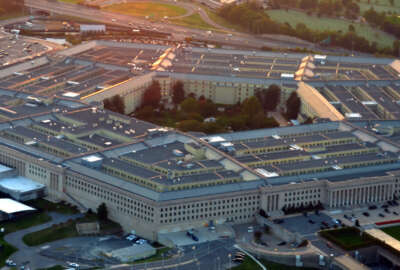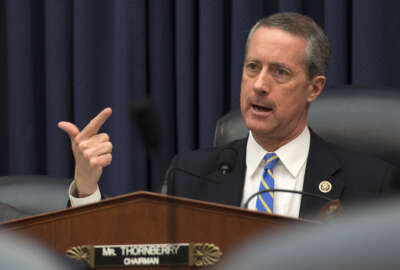
Defense spending fight looms for lame-duck Congress
Congress bought itself more time to work out a fiscal 2017 budget by passing a continuing resolution, but an intractable fight remains on the defense spending f...
Congress bought itself more time to work out a fiscal 2017 budget by passing a continuing resolution, but an intractable fight remains on the defense spending front.
Pentagon leadership and Capitol Hill for months have been sparring over the annual defense spending bill, namely the Overseas Contingency Operations, which members of Congress say has been exploited to avoid sequestration spending caps.
In a leaked memo addressed to Defense Secretary Ash Carter and Deputy Defense Secretary Robert Work, Pentagon officials said they intend to play “hardball” with members of the armed services committees over funding the OCO.
Justin Johnson, a senior policy analyst for defense budgeting policy at the Heritage Foundation, told the Federal Drive with Tom Temin that DoD’s acrimony in the memo goes beyond routine disagreements in department spending.
“What was, I think, disturbing, was how aggressive they were in this memo, how they were calling out members they were going to target. They’re deliberately trying to increase the partisanship on the issue,” Johson said. “National security should be something where there’s going to be little disagreements, but by and large, we should be able to work across party gaps to provide the security our country needs and the resources our military needs.”
The memo, dated May 13, takes issue with a proposal by House Speaker Paul Ryan (R-Ohio) to add an extra $18 billion to the final NDAA they send to President Barack Obama. But the White House has taken issue with increasing Defense spending without raising domestic spending. Both spending levels are capped by the sequestration limits put in place by the Budget Control Act in 2011.
“What the Pentagon leaders are being forced to say by the White House is ‘We won’t take another dollar, even though we desperately need it, unless there’s also a dollar for the EPA or another federal agency,” Johnson said. “Everything should be considered on its own merits, not politically linked like the administration is trying to do right now.”
Since the emergency wartime fund doesn’t adhere to sequestration caps, DoD has openly relied on the OCO to fund ongoing military costs not connected to overseas conflicts. Its 2017 budget explicitly acknowledged that at least $5.2 billion of OCO funds would be used for ongoing military needs.
“Unfortunately, the whole reason they were doing this, why they’re digging in on this OCO funding issue, has nothing really to do with funding the military. It’s actually about ensuring that funding for other parts of the federal government are tied to defense funding. Basically that’s coming down from the White House,” Johnson said.
With emerging threats from Russia, China, North Korea and the Islamic State, Johnson said DoD’s political leadership should accept the increase in funding to ensure military readiness.
“All those threats are on the rise at the same time that our military is shrinking … it’s struggling with maintenance and training, we’re not modernizing it appropriately, so I think we should be concerned about where the military is today versus our threats, and that’s mainly a funding issue,” Johnson said.
“Using that fund this year, as Republicans have proposed in Congress, to address some of these readiness crises, if you will, is not unreasonable. It’s not the best way to do things, but we all know what they’re trying to do, which is rebuild our military, and I think that’s something that most folks are willing to support,” Johnson said.
The Pentagon for years now has turned to its third-offset strategy as its solution to maintaining readiness despite a decrease in overall troop levels, but Johnson said DoD is sacrificing short-term readiness at it pursues defense technologies that could still be years away from being implemented.
“Obviously, I think from a national security perspective, we need to make investments in future technology, but I’m afraid that the problem might be in the nearer term, if we don’t have a force that’s large enough or ready for combat today or in the next five years, that gives potential adversaries a window of opportunity where they can do us harm,” he said.
Copyright © 2024 Federal News Network. All rights reserved. This website is not intended for users located within the European Economic Area.
Jory Heckman is a reporter at Federal News Network covering U.S. Postal Service, IRS, big data and technology issues.
Follow @jheckmanWFED




